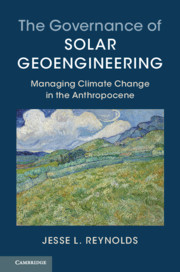Keeping global temperature rise to within 1.5–2 degrees Celsius above preindustrial levels is looking increasingly unlikely through mitigation alone. While increased adaptation to inevitable climate impacts will be necessary, a new realism is creeping into the climate debate. A growing number of scientists are proposing geoengineering technologies to deal with the expected shortfall, both through carbon dioxide removal and possibly through solar radiation management. But both approaches bring risks and pose significant governance challenges, and would likely affect different communities in different ways. As geoengineering moves mainstream, it is time to put governance at the heart of future discussion, and to broaden the debate from academia to governments, treaty bodies, faith groups, and civic organizations.
The Carnegie Climate Geoengineering Governance Initiative is a major new effort to catalyze this conversation, bringing together players from a wide range of social, geographical, and professional backgrounds. It argues that policymakers need to take an ethical risk management approach, informed by continued research. How should transborder and transgenerational ethical issues be addressed? How will governance frameworks withstand geopolitical change? Can we build on existing international treaties and institutions, or do we need new ones? And most immediately, how should further research on solar engineering be governed—given current plans to start experiments in the stratosphere? In a geoengineered world, who controls the “global thermostat”?


